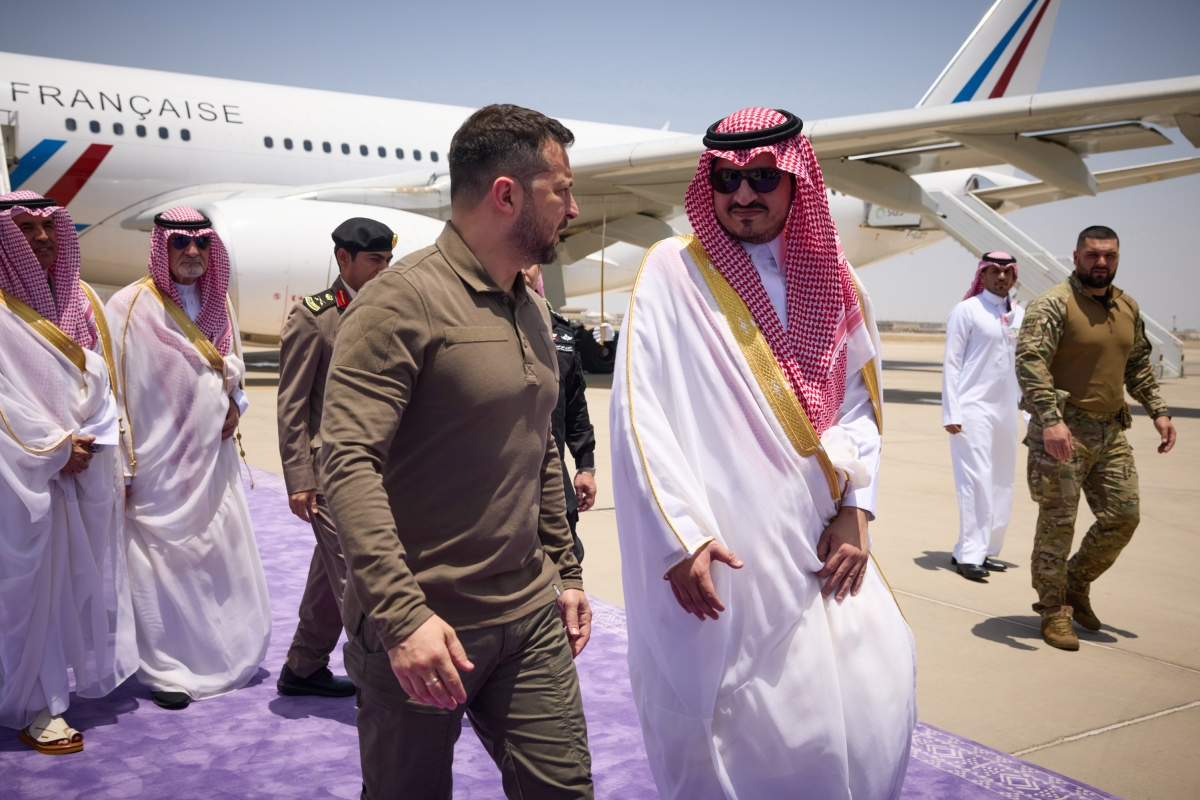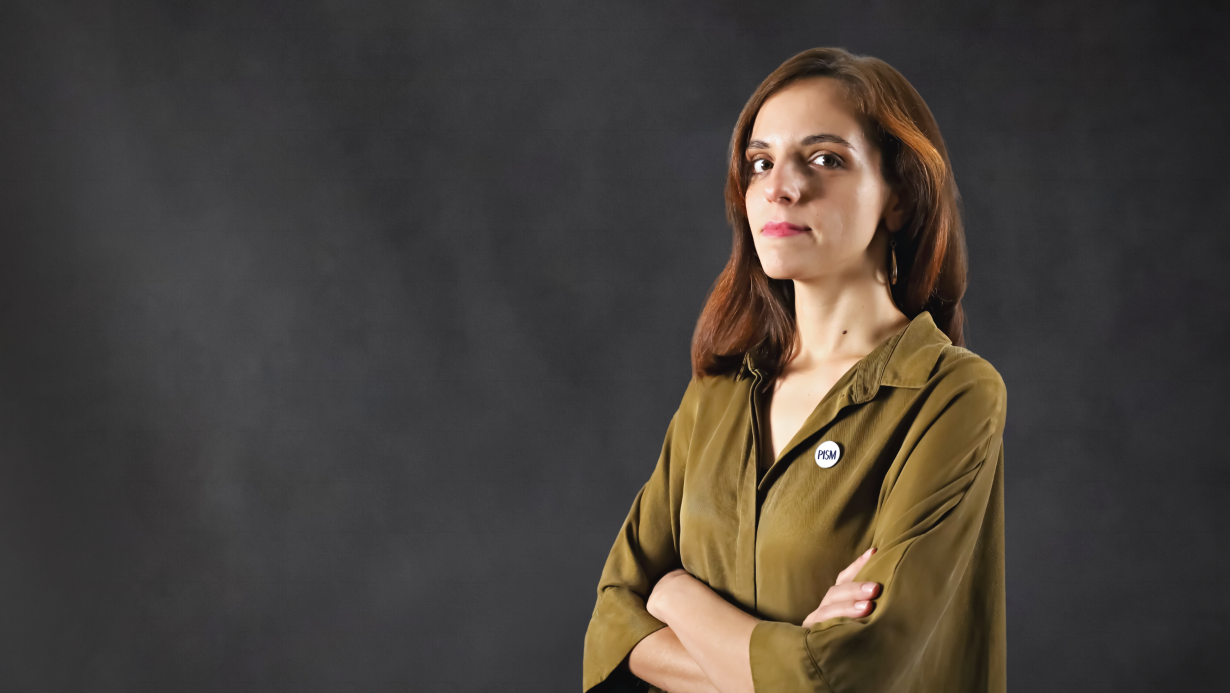Zelensky Participates in the Arab League Summit
On 19 May, Ukrainian President Volodymyr Zelensky attended the 32nd Arab League summit in Jeddah at the invitation of Saudi Arabia. In his address to the delegates, Zelensky focused on the Muslim Ukrainian community and building support for his peace plan. From a regional perspective, the visit was primarily intended to consolidate the role of Saudi Arabia as capable of shaping the foreign policy of all Arab states.
 POU / Zuma Press / Forum
POU / Zuma Press / Forum
Why did Saudi Arabia invite Zelensky?
The Ukrainian president’s visit served three purposes for the Saudi authorities. First, the monarchy wants to consolidate its position as the leader of the region. This is related to its leaders’ conviction about the change in the international order towards a multipolar one, which, in their opinion, is an opportunity for Saudi Arabia to become one of the global powers. The means to achieve this goal is also the monarchy’s greater involvement in global diplomacy, which was the second purpose of the invitation to Zelensky. The Saudis believe that their neutral stance on the war in Ukraine will allow them to mediate in the negotiations at its end. An obstacle in this regard, however, is the numerous accusations from Western countries that Saudi Arabia’s actions (e.g., limiting oil production under OPEC+) favour Russia. Therefore, the third goal of the meeting with Zelensky was to erase this negative impression by guaranteeing space for Ukraine’s leaders and representatives to build support for their cause among Arab states.
What were the main purposes of his visit?
The visit to Jeddah showed that Ukraine perceives Saudi Arabia as a key state in the region, capable of influencing the actions of other Arab leaders. The presence at the summit was therefore primarily intended to provide a foundation for strengthening Ukrainian-Saudi relations and persuading the monarchy to adopt a stance on Russian aggression closer to Ukraine’s. To further relations, Zelensky invited the Saudi heir to the throne, Muhammad bin Salman, to Kyiv.
Zelensky also wanted to find a common language with the societies of the Arab states, which was facilitated by the reference to the Muslim minority in Ukraine and the presence of Mustafa Dzhemilev, the Crimean Tatars’ leader. The Ukrainian president recalled the region’s colonial history, pointing out that the experience of foreign invasions and occupations allows Arab leaders to understand that Ukraine will not stop fighting Russia. This was to show the audience the imperial nature of Russia, which in this region, for historical reasons, is mainly attributed to Western states. He also referred to Iran’s involvement in supporting Russia, emphasising that some of the threats to the security of Ukraine and Arab states are the same.
Zelensky also promoted his peace plan among Arab leaders and highlighted Ukraine’s actions aimed at limiting the negative effects of the war on the Global South countries, such as the Black Sea Grain Initiative.
What were the Arab states’ reactions to Zelensky’s presence?
Most Arab leaders reacted positively to Zelensky at the Arab League summit. The only leader who expressed symbolic opposition to the Ukrainian president’s visit was Syrian leader Bashar al-Assad, who took off his headphones during Zelensky’s speech.
Delegations from countries that included Kuwait, the United Arab Emirates (UAE), Oman, and Iraq held bilateral meetings with the president of Ukraine. All states stressed the need for a “peaceful resolution of the conflict”. During the talks, Zelensky invited Iraqi President Muhammad Shia al-Sudani to Ukraine. An exchange of delegations with the UAE and strengthening of Kuwaiti-Ukrainian cooperation in the energy sector were also announced. Nevertheless, the 11-point Jeddah Declaration adopted after the summit did not refer to Ukraine, but only to regional issues. Similarly, in the official communication of the Arab leaders, the situation in Ukraine appeared as a secondary matter.
Can Zelensky’s participation in the summit change the policy of the Arab states towards Russian aggression in Ukraine?
Zelensky’s presence in Jeddah may be conducive to limiting the narrative favourable to Russia in countries such as Saudi Arabia or the UAE. In recent years, the regional policy of these states has contributed to the deterioration of their relations with the U.S., and criticism of their actions deepened with the recent resumption of Syria’s membership in the Arab League. They may therefore seek to use symbolic rapprochement with Ukraine to improve their image. The attitude of Kuwait and Qatar, which have unequivocally criticised the Russian invasion from the beginning, is also conducive to adopting a more favourable policy for Ukraine among the Arab states of the Persian Gulf. The visit of the Saudi crown prince to Kyiv would be crucial for changing the attitude of the Arab leaders as he could develop consensus among them on this matter.
At the same time, the lack of attention to Ukraine in the Jeddah Declaration, the choice of language by the Arab leaders (e.g. “crisis” instead of “war” or “Russian aggression”) and no specific declarations indicate that they are not willing to adopt an attitude convergent with the dominant one in the West, which could be perceived as anti-Russian by Russia.



_sm.jpg)
.png)
.jpg)